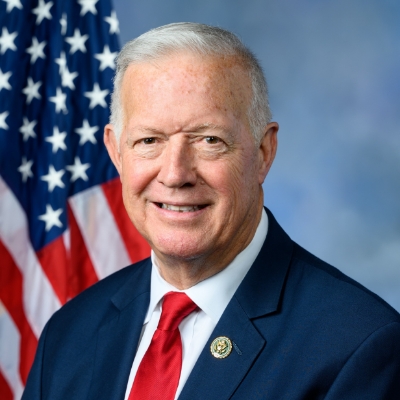- Home
- About
- Contact
- Services
- Art Competition
- Community Project Requests
- Congressional Commendations
- Flags
- Assistance with a Federal Agency
- Internships
- Military Academy Nominations
- Passports
- Presidential Greetings
- Tours and Tickets
- The Congressional Award
- Grants
- Water Resources Development Act 2026
- Additional Services and Resources
- Media
- Legislation
- Issues
- Resources
 U.S. REPRESENTATIVE
Randy Weber
Proudly Serving Texas' 14th District
U.S. REPRESENTATIVE
Randy Weber
Proudly Serving Texas' 14th District
Press Releases
Rep. Weber Celebrates House Passage of H.R. 1, the Lower Energy Costs Act
Washington,
March 30, 2023
Washington, D.C. - U.S. Rep. Randy Weber (TX-14) released the following statement on the passage of H.R. 1, the Lower Energy Costs Act, in the House of Representatives. “On President Biden’s first day in office, he launched a full-blown war on American energy. We watched the President of the United States kill the Keystone pipeline on Day One, drain the Strategic Petroleum Reserve to the lowest level since 1984 for political reasons, and beg foreign dictators for oil.” “House Republicans ran on the Commitment to America to bring Biden’s War on Energy to a halt, and today we did just that. We flipped the switch to turn American energy back on, because our majority is determined to stop the attack on the industry that single-handedly powers our nation. This bill will unleash American energy, lower energy costs for hard-working Americans, increase production, reform the drawn-out permitting processes, streamline the energy infrastructure, and boost the production and processing of critical minerals.” “American energy sustainability and dominance is critical to the future of our nation. President Biden has begged Saudi Arabia, Venezuela, and Russia for oil that America produces more cleanly, more efficiently, and more cheaply than any other country in the world. H.R. 1 will allow Texas to produce the energy the world needs for Americans to pay less and ensure our nation is secure.” The legislation is divided into three divisions: Division A includes measures to reduce regulatory burdens to critical resource production and trade, express congressional disapproval of President Biden’s cancelling of the Keystone XL pipeline, prohibit the Biden administration from instituting a federal ban on hydraulic fracturing (fracking), and repeal green energy taxes and slush funds enacted through the “Inflation Reduction Act”. Division B includes measures to facilitate production and bolster supply of various energy resources, streamline federal permitting processes, and secure domestic critical mineral resources and supply chains. It would require the Interior Department to carry out quarterly onshore oil and gas lease sales, annual geothermal lease sales, and issue the 2023-2028 5-year offshore leasing program. It would also end the moratorium on new coal leasing and reverse the royalty rate and fee increases for onshore and offshore leasing enacted through the “Inflation Reduction Act." It would reform the National Environmental Policy Act of 1969 (NEPA) to streamline environmental reviews by improving agency interoperability and setting page limits and deadlines for such reviews. It would further energy security by preventing the unilateral exclusion of uranium from future consideration as a critical mineral and streamlining permitting for domestic mineral projects. Division C includes reforms to streamline energy infrastructure permitting and rein in states’ regulatory abuse with respect to the Clean Water Act Section 401 review process. It would amend the Clean Water Act to clarify the scope of the CWA’s Section 401 review process by limiting such reviews to whether a federally permitted activity complies with applicable water quality standards under the CWA, and require state certifying agencies to publish requirements for water quality certification requests. |
